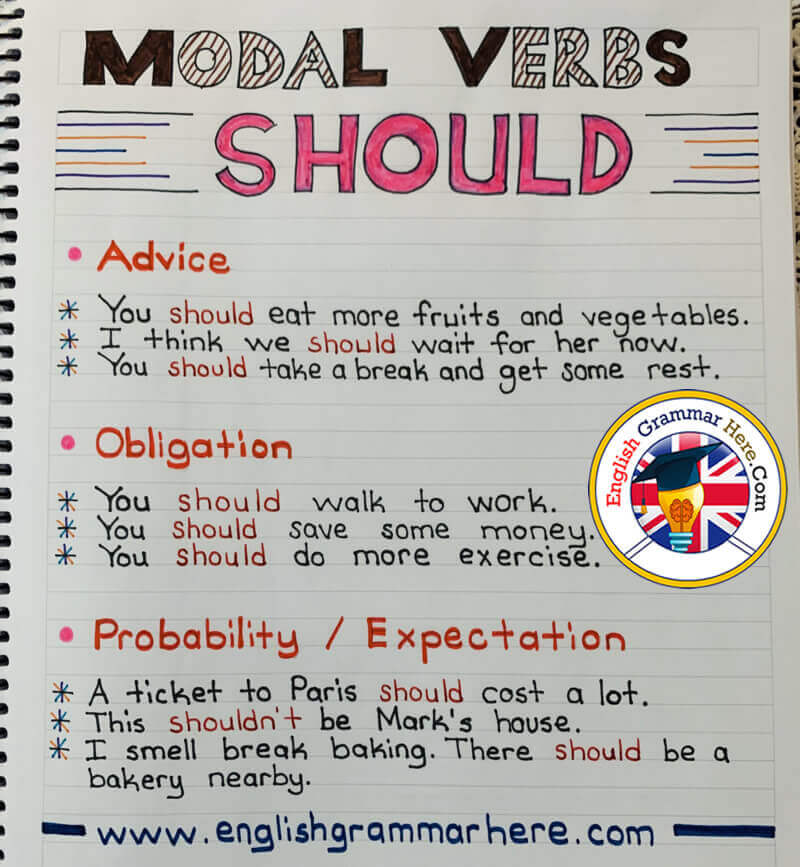
“Should,” “ought to” and “had better” are all good ways for giving advice.
ENGLISH MODAL VERBS EXERCISES HOW TO
You can use these to teach your students how to construct polite questions. Permission: Modal verbs like “can,” “could” and “may” are all used for giving or asking for permission.Here are just some of the things they’re used for: This is why they’re absolutely essential for your students. Modal verbs are incredibly versatile and are used for several different functions in the English language. May and might are clearly great modal verbs to know because they enable you to do several important things in English such as make predictions and ask permission.Try FluentU for FREE! The Many Uses of Modal Verbs MAY or MIGHT in combination with ‘as well’ to mean you should do something because there’s no better alternative.For example, May you both live happily ever after together. We can also use these modal verbs in the following situations: With you it’s more common and natural to use Could. We generally use may for requests in the first person – I and we. For example, Might we come in? But it’s quite unusual today and only used in a really formal context. In the past, might was also used to make requests. May I leave early Sir? – No, you may not. When we ask and give permission we often use may as an alternative to can. He may have missed his train.Īnn may have failed the exam because she was sick. Where’s my wallet? – You might have left it in your jacket. In this case we had have + past participle of the verb. We can also may and might to express possibility in the past. Might is also a bit more informal than may and is more common in spoken English. It might rain later on, but I don’t think it will. May usually expresses a 50% possibility, while an action with might normally means a slightly lower possibility, e.g. There is a small difference in the level of probability. He’s been playing very well recently.ĭo you think the company might hire more people next year? We can use both may and might to express a possibility or make a prediction. Possibility (in the past, present or future).May and might are modal verbs that can have a similar meaning.

The only modal verb that doesn’t follow these rules is ‘have to’, which acts like a normal verb. These similarities can really help you when you speak because you don’t have to worry about different forms or rules. For example, She would like to be allowed to arrive ten minutes late.


For example, the phrase “They go to school” can change meaning with a modal verb in the following ways:

While auxiliary verbs help make questions and negatives and put a verb in a particular tense, modal verbs add a special meaning. So here’s your chance to find out more about these two important modal verbs, then you can practice using them yourself.Ī modal verb is a verb that is used in combination with a normal verb. Perhaps you’ve heard about ‘may’ and ‘might’ and not been sure about what they mean and when they’re used. You’ve probably already studied some modal verbs in English, like ‘can’ and ‘must’.


 0 kommentar(er)
0 kommentar(er)
